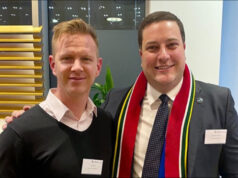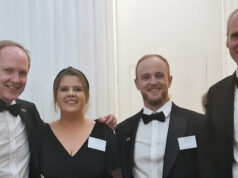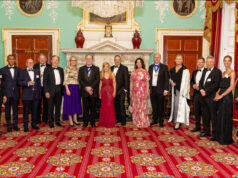The banking industry is changing. The days of being greeted at the door by your friendly local branch manager, who knows you and understands your business, are long gone – local branches are closing at a record rate. According to Which, 3770 local branches have closed in the UK since 2015, a reduction of around 30%. More are set to close this year.
Reflecting a wider trend of struggling High Streets, and accelerated by the Coronavirus pandemic, more and more banking is being conducted facelessly and impersonally, online. Yet, unlike the sorrow felt over the disappearance of a number of traditional, long-established High Street retailers, since the banking crash of 2007 there is little sympathy left in the kitty for High Street banks. What were once some of the most trusted and reliable brands are still today viewed by large sections of the population with cynicism and suspicion. For businesses predicated on looking after our money; trust is everything.
Over the last decade or more, there has been a subtle change on the wind. The desire to secure our future wellbeing has extended beyond a desire for financial security, to something even more fundamental. Where once economic growth and prosperity were taken for granted as the metric of a society’s success, there has been a growing acceptance amongst the public, governments, investors and banks alike of the realisation that all the money in the world is of no use if you can’t breathe the air or grow food in the soil, if the oceans contain more plastic than fish, or rising seas swallow up your land, or your home and business are regularly destroyed by ferocious storms.
2019 saw the emergence of the “Extinction Rebellion”, a grassroots protest movement against the reduction in bio-diversity, which succeeded in occupying key sites in Central London for 2 weeks. While many of us over 50s grew up with the threat of a nuclear Armageddon bringing on the end of the world, that threat seemed at least manageable in the sense that it rested on the decisions of a small number of hopefully rational people. The threat of “Anthropocine Extinction” is rendered significantly more pernicious, as it results from millions of small decisions taken by billions of people, and is therefore a harder paradigm to shift.
Protecting the environment and bio-diversity is something that can’t be achieved by simply locking it in a secure vault. So what do banks have to offer?
On September 22nd 2019, the UN Environment Program launched the “Principles for Responsible Banking” which were immediately signed by more than 130 banks, including SA Chamber Platinum Members; ABSA and Standard Bank. Their objective is to align banking principles with the Paris Climate Accord and the UN’s Sustainable Development Goals.
The term ESG (Environment, Social and Governance) has entered the investment lexicon, and it looks like it’s here to stay. It’s more than just words, as Alastair Gallichan of Standard Bank Wealth International Jersey discusses below:
2020 was a year like no other. Communities from around the globe faced an indiscriminate crisis. As with any crisis, the COVID-19 pandemic has created some positive outcomes and opportunities in disrupting some of the long standing and traditionally accepted pre-COVID norms.
For one, it has led to a steep rise in demand for financial products that intentionally promote a shift to a more sustainable economy. The pandemic has highlighted the clear links between climate change and societal wellbeing, a theme that affects us all. This has provided a common platform for us all as we move toward a ‘build back better’ mindset and journey to a post pandemic existence.
With an ever-greater focus on transparency, sustainable social bonds and loans are gaining traction as lenders and corporates work together to ensure funding is being deployed for societal good. In fact, social bond issuances have surged 700% since 2019, pushed by insatiable demand in Europe spurred on by the recent launch of the EU Taxonomy. We have noted that investment funds with clearly defined and focussed environmental, social and corporate governance (ESG) attributes are increasingly being regarded as safe-haven assets amid economic downturns.
During last year’s market sell-off, large-cap ESG focussed funds outperformed global investment indices avoiding the falls seen in the retail, energy and travel sectors and we are seeing increasing structural support and investor demand for “green” solutions.
Against this backdrop, we are engaging with clients in traditionally carbon-intensive industries, including mining and energy, to encourage their participation in this growing asset class as part of a just transition to more sustainable long-term business models.
On Thursday, March 4th, the South African Chamber of Commerce will be hosting John Martin, CEO of Plutus Consulting discussing Responsible Banking: how detangling ESG behaviours will influence the future of banking. The objective of the webinar will be to connect owners, investors and managers of private capital/assets to Responsible Banking strategies, in the context of Climate Emergency.
“Sustainability is not about biology, but about changing behaviours”, says Martin.
Click here to reserve your space and bring yourself up to speed on these important developments.
Later in March we will be discussing “the Global Citizen” with key business leaders and an academic panel from the University of the Free State, focusing on the challenge of creating sustainability in the long term.
Throughout the year, running up to COP 26 at the start of November, the Chamber will be featuring webinars, discussions and round tables around the “Green Economy” agenda.
Last year, Standard Bank Wealth International presented a webinar which discussed the role that Financial Services will play in the shift towards a sustainable mindset. Joined by Lewis Pugh, United Nations Patron of the Oceans, the session was hosted by Timothy Townsend.











